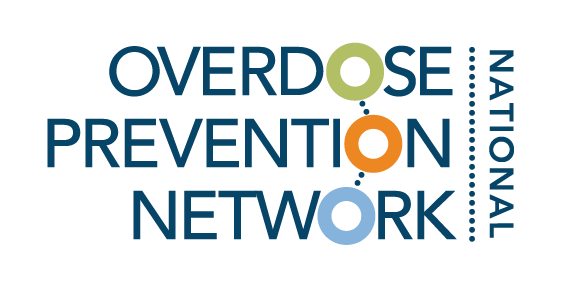
Events & Webinars
Filter by category and tags. Or search by keyword (ex. harm reduction).

COPN Workshop: Healthy Places Index Data Access and Interpretation
The California Overdose Prevention Network (COPN) and the Public Health Alliance of Southern California are teaming up in this webinar and workshop series to discuss how intervening on the social determinants of health (SDoH) can reduce the opioid overdose rate and overdose deaths. Join us on Wednesday, March 11 from 11:30 am to 12:30 pm PT for the first workshop in the series that will discuss how to access and interpret the Healthy Places Index and build on the foundational skills from the first webinar. During the workshop participants will learn how to access and interpret HPI data, with a focus on opioid-related indicators. This session will include hands-on exercises and Q&A opportunities.
In the workshop series together we will:
Take a deep dive into a new tool called the Strategic Action Planner & SDoH Roadmap that will help coalition members
Effectively access the opioid data on the HPI map platform
Understand what these data mean and how to use them to develop community-driven solutions
Learn key strategies for communicating results and implementing solutions with communities

COPN Workshop: Data Application and Messaging Strategies
The California Overdose Prevention Network (COPN) and the Public Health Alliance of Southern California are teaming up in this webinar and workshop series to discuss how intervening on the social determinants of health (SDoH) can reduce the opioid overdose rate and overdose deaths. Join us for the final workshop in this series on Wednesday, April 8 from 11:30 am to 12:30 pm PT. In this workshop participants will combine the knowledge from the first two sessions to be able to develop a messaging plan using key strategies to best communicate the data findings from the Healthy Places Index (HPI). During the workshop participants will review practical applications of HPI data in the context of opioid prevention efforts. Participants will learn and practice effective messaging strategies for various stakeholders, including policymakers and community members.
In the workshop series together we will:
Take a deep dive into a new tool called the Strategic Action Planner & SDoH Roadmap that will help coalition members
Effectively access the opioid data on the HPI map platform
Understand what these data mean and how to use them to develop community-driven solutions
Learn key strategies for communicating results and implementing solutions with communities

More than a Map: Healthy Places Index & Social Determinants of the Overdose Epidemic
The California Overdose Prevention Network (COPN) and the Public Health Alliance of Southern California are teaming up in this webinar and workshop series to discuss how intervening on the social determinants of health (SDoH) can reduce the opioid overdose rate and overdose deaths.
This first webinar will cover:
How improving community conditions like increasing household income, access to transportation, and safe, stable housing are key aspects of opioid overdose prevention
How and what community-centered solutions can improve opioid overdose rates
How to use the Healthy Places Index (HPI) map platform to determine community strengths and opportunities for intervention to improve opioid overdose death rates, emergency department visits, hospitalizations, and opioid prescription rates
In the workshop series together, we will:
Take a deep dive into a new tool called the Strategic Action Planner & SDoH Roadmap that will help coalition members
Effectively access the opioid data on the HPI map platform
Understand what these data mean and how to use them to develop community-driven solutions
Learn key strategies for communicating results and implementing solutions with communities

COPN Convening: Messaging Strategies for Overdose Prevention in California
Messaging is powerful: what we say, how we say it, and who we say it to. Every day, local coalitions across California implement innovative communication strategies to advance overdose prevention and save lives. Join us on Tuesday, February 3 from 12:00 pm - 2:00 pm PT for the 2026 virtual Bi-Annual COPN convening on effective messaging strategies in overdose prevention. We will hear from a panel of local coalition leaders who will share their experience implementing innovative messaging strategies to engage new partners and community members. After the panel, participants will dive further into these innovative approaches and learn practical steps to get started in your own community. Don't miss out on this opportunity and register today!

COPN Workshop: Navigating the Spectrum of Addiction Treatment
Navigating addiction treatment can be confusing, discouraging, and frustrating for individuals seeking help and for the families and communities who support them. Although effective treatments exist, including life-saving medications like buprenorphine (Suboxone), many people never receive care, struggle to stay engaged, or encounter stigma and misinformation that block their path to recovery. This workshop will offer a deeper dive into the concepts presented during the NOPN webinar, The Path to Recovery: Understanding the Ups and Downs of Addiction Treatment. During the workshop, participants will discuss how stigma and misinformation create barriers to care in their community and what providers, advocates, and community members can do to expand access, reduce harm, and create more compassionate pathways to recovery. Participants will leave with practical insights and next steps they can take to support individuals and families affected by substance use disorder.

The Path to Recovery: Understanding the Ups and Downs of Addiction Treatment
It is frustrating for people with a substance use disorder and their families when attempts to seek treatment are met with challenges, or when treatment appears to not work. It can also be exasperating when someone appears to be in treatment, then falls out of treatment or when this pattern repeats. Even though treatment for opioid use disorder is highly effective, for these and other reasons, it is significantly underused. Medications like buprenorphine, also known as Suboxone, can help people manage their cravings and significantly reduce their risk of dying. However, only a small percentage of people receive treatment, either because they can’t access care, don’t stay in care or don’t believe they need it.
Join us for a deeper look into the realities of addiction treatment and steps your community can take to help reduce stigma and expand paths toward recovery. First, we will hear the personal story of someone who navigated many of the challenges of treatment and now is in long term recovery. Their compelling lived experience will paint a realistic picture of the complex pathway to recovery, and the reality many people face in cycling in and out of treatment for this chronic, relapsing brain disease. Then we will hear from Dr. Brian Hurley, an addiction physician and the Medical Director of the Bureau of Substance Abuse Prevention Control for the Los Angeles County Department of Public Health. Dr. Hurley will discuss how treatment works, how care is delivered, and what effective, evidence-based treatment looks like in practice. This webinar will explore the treatment process, where it’s delivered, and what individuals can expect when seeking help. Finally, we will discuss how misinformation creates barriers to care, and how providers, advocates, and community members can help reduce stigma, broaden awareness, and reach individuals and families who need treatment most. Participants will leave with practical insights and tools to support more compassionate, informed, and accessible pathways to recovery.

COPN Workshop: When the Holidays Hurt
We are offering a workshop on Tuesday, December 16, from 10:30 AM – 12:00 pm to build on the important concepts that will be shared in our upcoming national webinar, When the Holidays Hurt: How to Support Ourselves and Others Through Grief Including Loss Associated with Substance Use, Addiction and Overdose. This interactive session will help you apply practical strategies to offer care to those experiencing loss, to create a plan of support during times of loss and to create a safe space for a griever during the holidays.

When the Holidays Hurt: How to Support Ourselves and Others Through Grief Including Loss Associated with Substance Use, Addiction and Overdose
Grief isn’t just bereavement - it is experienced in many types of life events where we feel a sense of loss. That could include things like losing our job, a relationship ending or sending a kid off to college. Grief is also felt when we are caring for and supporting folks experiencing substance use, addiction, and overdose. When we experience loss, the holidays and major life events can be a challenge. We may need to adjust our expectations, think through how we process emotions, and even create new traditions moving forward. It’s a lot. This training will explore why the holidays are difficult for grievers, and what actions we can take to help someone living with loss. We’ll talk about what is helpful and what isn’t when we are supporting those we care about and work with who are facing the intersection of the holidays and challenges related to substance use, dependency and recovery. And we’ll offer some practical ways to show up for the folks we care about - including ourselves. If you have ever felt like you don’t know quite what to do or say for someone experiencing loss - this webinar is for you! This Web Forum is sponsored by the National Overdose Prevention Network, a program of PHI Center for Health Leadership & Impact and produced by Dialogue4Health.

COPN Workshop: Communities Preventing Overdose in California
Join us on Thursday, December 4, from 9:30 AM - 11:00 AM to build on the important concepts that were shared in our recent national webinar, Communities Preventing Overdose: 3 local strategies to prevent addiction, get people into treatment, and save lives. This will be an interactive workshop for participants to dive deeper and explore interventions they can replicate in their community.

Communities Preventing Overdose: 3 local strategies to prevent addiction, get people into treatment, and save lives
How do we prevent overdose in our communities? Join us to learn innovative approaches taking place across the country to prevent new addictions, get people into treatment, and save lives. We will hear from a youth leader in a rural community on how he and his peers are building awareness on the risks of drug use, a substance use navigator connecting patients in the emergency room to addiction treatment, and a government leader implementing a broad campaign with bars, motels and other partners to make fentanyl test strips and naloxone, the lifesaving overdose reversal agent, readily available.
This webinar is part of our new series entitled Building a Movement of Knowledge, Action and Empathy to Prevent Overdose Deaths. Our goal is to increase knowledge of overdose prevention among a broad audience including community members, law enforcement, parents, first responders, educators, teachers, clergy, service providers, businesses, librarians, and more. Help us build an informed, actionable, and empathetic movement by making sure members of your community are registered for this webinar and ongoing series. Please share the registration link with at least three local listservs, social media accounts, or individuals.
This Web Forum is sponsored by the National Overdose Prevention Network, and produced by Dialogue4Health, both programs of PHI Center for Health Leadership & Impact.
Support for this webinar series was made possible through funding from the California Health Care Foundation.

COPN Accelerator 7.0 Program Information Session
PHI Center for Health Leadership & Impact is pleased to announce our upcoming COPN Accelerator 7.0 cohort program for local multi-sector teams and coalitions. Accelerator 7.0 is designed to help multi-sector teams build adaptive leadership skills to better integrate overdose prevention activities with behavioral health services in their community. Join our information session to learn more about the program and application process. We will include a live Q&A session to address any questions and open the application immediately after the event.

Addiction 101: Turning Awareness into Action in California
After you attend or watch the recording of our NOPN Webinar, Addiction 101: Understanding the Science and Stories to Prevent Overdose, join us for a focused workshop where we will explore how those in our COPN network can take actionable steps in California. This will be an interactive workshop for participants to dive deeper and map out actionable steps they can take to build knowledge, awareness and empathy in their personal network and across sectors in their community.

Addiction 101: Understanding Lived Experience and the Science to Prevent Overdose
We are launching a new webinar series in our pursuit to build a movement of knowledge, action and empathy to ensure that everyone – from parents and educators to first responders and business owners - understand the basic science of addiction, how it hijacks the brain, and what strategies are proven to prevent overdose and overcome addiction. Be sure to register for the first webinar in the series on Tuesday, September 23 from 11:30 am – 12:30 PM PT, Addiction 101: Understanding Lived Experience and the Science to Prevent Overdose. We will hear from someone with lived experience of substance use disorder and recovery, offering a personal look at the challenges and realities of navigating addiction. Then hear from an addiction specialist who will share the latest in addiction science and offer a clinical perspective of how substance use disorder develops and the current tools we have for overdose prevention and treatment.
This webinar is designed to build knowledge of “addiction 101” across a broad audience including community members, law enforcement, parents, first responders, educators, teachers, clergy, service providers, businesses, librarians, and more.

Saving Lives Where They’re Lived: Street Medicine & Overdose Prevention in Action
Join us for a powerful conversation to hear how street medicine outreach teams are working together to prevent overdose and save lives. This webinar will explore the vital role of street medicine and community-based harm reduction in overdose prevention. Participants will learn strategies taking place across California that are grounded in trust, peer engagement, and direct outreach to people who use drugs. Speakers will showcase community-driven care models and how they build connections beyond traditional settings, including mobile outreach vans that reach people living in encampments, overdose response teams that connect people to treatment, and naloxone distribution during the annual point-in-time survey of people experiencing homelessness. Spread the word and register today!

Policy into Practice: How Local Communities Are Implementing CA’s New School-Based Overdose Prevention Policies
Newly enacted legislation in California will help advance overdose prevention among youth, including greater access to naloxone in schools and required education about the dangers of fentanyl. How can you build effective partnerships with schools, wellness centers and other stakeholders to ensure these policies are put into practice in your community? We held an informative webinar on July 22nd from 11:30 am – 12:30 pm on the steps you can take to help translate policy into practice. We started with an overview of new youth-focused policies in California and then heard examples from local coalition leaders on how they are partnering with their local school districts to translate policy into practice.

Creating Safe Space: What Young People Need in Overdose Prevention
For youth navigating life’s challenges and rising behavioral health needs, feeling safe is a vital first step toward substance use prevention and harm reduction. This webinar, led by Jasmine Nakagawa from the Cypress Resilience Project, will explore practical, trauma-responsive strategies for creating welcoming, supportive spaces that foster trust and engagement — key elements in working with youth. This Web Forum is sponsored by the National Overdose Prevention Network, a program of PHI Center for Health Leadership & Impact and produced by Dialogue4Health. Spread the word!

2025 Spring COPN Convening: Innovative Overdose Prevention Strategies in California
Every day, local coalitions across California implement innovative strategies to advance overdose prevention, treatment, and harm reduction. On Wednesday, May 14 from 11:00 am - 1:00 pm PT to attendees learned about new methods and practices that can be adopted in their own community. We heard from a panel of local coalition leaders who shared valuable insights on how their collaborative efforts have been put into action. After the panel, participants joined breakout rooms to dive further into the innovative approaches and learned practical steps to get started in their own community.

Behind the Numbers: Making Sense of Trends in the Drug Supply and Overdose Rates
Have you had trouble making sense of recent trends in the drug supply and overdose rates? You’re not alone. In recent years, countless new synthetic drugs have entered the drug supply, and various theories are posited for changes in overdose death rates. Join us on Monday, May 5, from 11:30 – 12:30 pm PT to hear from Dr. Nabarun Dasgupta, a scientist and activist at the University of North Carolina at Chapel Hill who focuses on overdose epidemiology and prevention. He will explore why novel psychoactive substances and new markets have emerged in recent years and break down recent overdose data trends and gaps. This Web Forum is sponsored by the National Overdose Prevention Network, a program of PHI Center for Health Leadership & Impact and produced by Dialogue4Health. Don’t miss out and register today!

Engaging Pharmacists: Opportunities for Overdose Prevention, Treatment and Harm Reduction
Overdose prevention, treatment, and harm reduction affects all sectors of the work and pharmacists are often overlooked as a priority provider to engage in this work. Pharmacists play a meaningful and critical role in their community or health-system supporting overdose prevention and to treatment. Our web forum, Engaging Pharmacists: Opportunities for Overdose Prevention, Treatment and Harm Reduction on March 25, 2025 from 11:30 am - 12:30 pm PT presented a panel of pharmacists that provided insights from their perspective on how they became involved in overdose prevention, treatment, and harm reduction work, followed by opportunities they recommend to engage other pharmacists in local efforts. This Web Forum is sponsored by the National Overdose Prevention Network, a program of PHI Center for Health Leadership & Impact and produced by Dialogue4Health.

The Power of Connection
The work we do in overdose prevention has always been difficult, but added stressors continue to cause unprecedented levels of toxic stress and burnout. Oftentimes we hear in our culture that we need to practice “self-care” but that terminology can be challenging for many of us. Maybe we feel selfish or undeserving. Or maybe we feel we already have so much on our plates, how are we supposed to add that to the list? In this web forum, The Power of Connection on February 12, 2025 we heard from Brooke Briggance, Program Director at Cypress Resilience Project to learn about “collective care” and “community care” and which stems directly from the brain’s need for healthy connection. Brooke explored what healthy connection looks like, its role in healing and how we can access it to support our well-being. This Web Forum is sponsored by the National Overdose Prevention Network, a program of PHI Center for Health Leadership & Impact and produced by Dialogue4Health.

Shattering the Stigma of Substance Use Disorders
Unlike other chronic diseases, substance use disorders (SUD) are often seen as a moral failing. This stigma deeply impacts everyone including individuals, families, and communities. It also presents major barriers to ensure access to life-saving overdose prevention services and treatment. On December 11, 2024 from 11:30 am - 12:30 pm PT, we heard from Leslie Alfaro, the National Stigma Initiative Program Manager at Shatterproof. Leslie the real-world impact of stigma through data findings from Shatterproof’s recent nationwide survey on addiction stigma, the largest survey on attitudes towards SUD. Participants also learned practical steps they can take to help identify and combat stigma in their organizations and communities. This Web Forum is sponsored by the National Overdose Prevention Network, a program of PHI Center for Health Leadership & Impact and produced by Dialogue4Health.

PHI CHLI Request for Applications Information Session: Reducing Overdose Deaths in California through Prevention, Treatment and Harm Reduction Strategies led by Multi-Sector Coalitions
The California Overdose Prevention Network (COPN), based at the PHI Center for Health Leadership and Impact (CHLI), is pleased to release a funding opportunity for local overdose prevention coalitions to reduce overdose deaths from illicitly manufactured fentanyl and other drugs through implementation of overdose prevention, treatment and harm reduction strategies. Multi-sector coalitions are encouraged to apply for this opportunity to fortify and sustain strategies that are responsive to local needs in their community and/or region. Please join us on October 22 from 11:30 am - 12:30 pm PT to learn more about the funding opportunity. Applications open following the information session on October 22, 2024.

COPN Accelerator 6.0 Information Session
PHI Center for Health Leadership & Impact is pleased to announce our upcoming COPN Accelerator 6.0 cohort program for local multi-sector teams and coalitions. Accelerator 6.0 is designed to help your coalition develop a customized messaging plan for your community. The program is structured to support your coalition’s efforts in overdose prevention, strengthen partnerships, build buy-in from local stakeholders, continue innovative interventions, achieve your coalition goals, and manage pushback locally. Join our information session on Wednesday, October 16, 2024 from 3:30 pm - 4:30 pm PT to learn more about the program and application process. We will include a live Q&A session to address any questions about the program and application process. Applications will open after the event.

Turning Policy into Practice: Implementation Guides for Overdose Prevention and Harm Reduction
In this Web Forum, ChangeLab Solutions will introduce two essential policy guides: one offering 11 evidence-based strategies at the state, local, and institutional levels, and the other created in partnership with the Network for Public Health Law providing guidance on the policymaking process for effective and equitable implementation. Participants will discover how these resources can support their work to advance policy changes that address community needs. This Web Forum is sponsored by the National Overdose Prevention Network and produced by Dialogue4Health.

Foundations of Indigenous Harm Reduction
Join us on Tuesday, July 23 from 11:30 am - 12:30 pm PT for a conversation with Arlene Brown, member of the Bishop Paiute Tribe and creator of the National Harm Reduction Coalition’s new Native Harm Reduction Toolkit. This toolkit was developed to empower Native communities, recognizing the need for Indigenized and decolonized approaches to public health overdose prevention interventions. This web forum will provide an overview of the toolkit, featured resources, and case examples of how it can be put into practice. We will also include interactive polling features for you to engage with the speaker and ask questions. Register today, and please spread the word with Native and Indigenous partners in your community. This Web Forum is sponsored by the National Overdose Prevention Network, a program of PHI Center for Health Leadership & Impact and produced by Dialogue4Health.

2024 COPN Convening: Overdose Prevention Legislation and Policy Solutions in California
How do we translate policy into action to save lives? Join us for this free virtual event to hear from experts in California on recent and forecasted policy and legislation related to overdose prevention, substance use treatment, and harm reduction. Local leaders will also share examples of how they have passed policy at the local level, and participants will have the opportunity for peer discussion and exchange on how to translate policy into practice. Don't miss out and register today!

Lessons in Framing Overdose Prevention: A National Conversation
Advocates nationwide face unique challenges in communicating about overdose prevention. For example, it can be difficult to tailor messages to specific audiences when the strategies to address overdose issues may vary widely between preventing addiction from starting, addiction management and treatment, and/or avoiding overdose fatalities. In addition, it can be difficult to identify and train trusted messengers who can provide a local perspective and be prepared to answer tough questions unique to rural communities.
To support advocates nationwide to communicate more effectively on their harm reduction strategies, BMSG will share messaging guidelines that draw on findings from a recent review of overdose prevention materials in contexts nationwide. This Web Forum is sponsored by the National Overdose Prevention Network, a program of PHI Center for Health Leadership & Impact, and produced by Dialogue4Health.

Lessons in Framing Overdose Prevention: Considerations for Rural Communities
Rural communities in California face unique challenges in communicating about overdose prevention. For example, it can be difficult to tailor messages to specific audiences when, in many rural communities, one person or group may play many roles. In addition, it can be difficult to identify and train trusted messengers who can provide a local perspective and be prepared to answer tough questions unique to rural communities.
To support rural stakeholders to communicate more effectively, Berkeley Media Studies Group (BMSG) shared messaging guidelines that draw on findings from a recent news analysis and learnings about framing overdose prevention in rural contexts nationwide. This Web Forum is sponsored by the National Overdose Prevention Network, a program of PHI Center for Health Leadership & Impact, and produced by Dialogue4Health.

Tackling Stimulant Use Disorder: Opportunity of Contingency Management
Millions of Americans use stimulants, which contirubted to more than 30% of overdoses in 2021. Join us for an insightful event where we will be discussing the intricacies of contingency management and exploring its nationwide implementation and seamless integration with other Medication-Assisted Treatment (MAT) strategies. We will provide valuable insights and foster a deeper understanding of this impactful approach in the realm of addiction treatment. This Web Forum is sponsored by the National Overdose Prevention Network, a program of PHI Center for Health Leadership & Impact and produced by Dialogue4Health.

Committing to Equity: How to Drive Change in Overdose Prevention, Treatment and Harm Reduction
Vast inequities persist in the field of overdose prevention, with overdose rates climbing among communities of color who face lower access to treatment and harm reduction services. What can we do to help turn the tide and build an equity agenda in our communities? Join us for a two-part virtual event to learn about the systems, policies and practices that contribute to inequities, and steps you can take to drive change. The first hour will include an engaging presentation followed by Q&A to surface the most pressing barriers participants face towards embedding equity in their work. The final 30 minutes will be interactive, with participants answering a series of reflection questions to identify practical steps they can take in their organizations and communities moving forward.
Spread the word and register today!

Policy Solutions: Combatting Overdose Deaths & Enhancing Treatment Access in California
Policy change is critical to sustaining our most effective overdose prevention strategies. Several significant policies were recently enacted in California that can help bolster your local work. Join us on Tuesday, February 27 from 11:30 am - 12:30 pm PT to hear from our partners at the Legislative Analysis and Public Policy Association (LAPPA) on the current policy landscape for overdose prevention and treatment in California. The presenter will highlight evidence-based legislation enacted in California from their recent report, 2023 State of the States: Legislative Roadmap for Reducing Overdose Deaths and Increasing Access to Treatment. Spread the word and register today!

What Lies Ahead: Key Trends in Overdose Prevention in 2024
The most recent National Overdose Prevention Leadership Summit focused on ideas and trends in overdose prevention. In this web forum we will cover some of the highlights from the summit and discuss what's to come in the year ahead. Join us for an insightful conversation where we'll explore the top five forward-looking trends in the fields of prevention, harm reduction, legislation, and treatment, including the surge of Xylazine and Stimulants. This event promises a glimpse into groundbreaking concepts and cutting-edge advancements that are set to shape the landscape in 2024.
